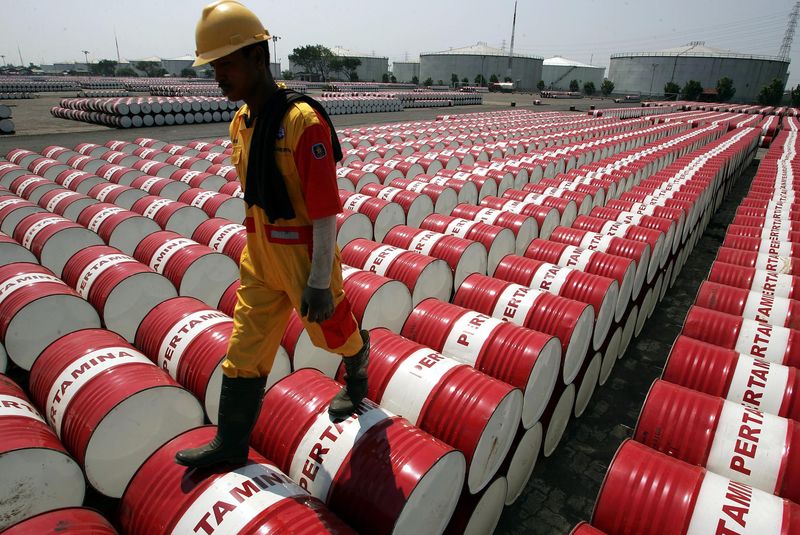Investing.com - Oil prices extended overnight losses in North American trade on Tuesday, dropping to the lowest level in nearly six weeks as market players shifted their focus to weekly data from the U.S. on stockpiles of crude and refined products.
Crude oil for November delivery on the New York Mercantile Exchange slumped to a daily low of $43.12 a barrel, a level not seen since August 11. It was last at $43.23 by 9:35AM ET (13:35GMT), down 63 cents, or 1.44%.
Industry group the American Petroleum Institute is due to release its weekly report at 4:30PM ET (20:30GMT) later on Tuesday.
Official data from the Energy Information Administration will be released Wednesday. Analysts expect an increase of 2.3 million barrels in crude stocks. Gasoline inventories are expected to fall by 1.5 million barrels, while stocks of distillates, which include heating oil and diesel, are forecast to decline by 1.4 million barrels.
Elsewhere, on the ICE Futures Exchange in London, Brent oil for November delivery dipped 75 cents, or 1.63%, to trade at $45.22 a barrel.
The contract fell to $45.13 earlier, the lowest since August 11, after Venezuela said that global supplies needed to fall by 10% in order to bring production down to consumption levels.
Global oil supply of 94 million barrels per day needs to fall by about a tenth if it is to match consumption, Venezuela's Oil Minister Eulogio Del Pino said on Monday.
Oil futures spiked on Monday after Venezuelan President Nicolas Maduro said that OPEC and non-OPEC countries were "close" to reaching a deal to stabilize oil markets. But prices ended well off the highs amid skepticism over whether such a deal can be agreed upon.
OPEC members, led by Saudi Arabia and other big Middle East crude exporters, will meet non-OPEC producers led by Russia at informal talks in Algeria between September 26 and 28.
According to market experts, chances that the meeting would yield any action to reduce the global glut appeared minimal. Instead, most believe that oil producers will continue to monitor the market and possibly postpone freeze talks to the official OPEC meeting in Vienna on November 30.
An attempt to jointly freeze production levels earlier this year failed after Saudi Arabia backed out over Iran's refusal to take part of the initiative, underscoring the difficulty for political rivals to forge consensus.
The market is also waiting for the outcome of the Federal Reserve and Bank of Japan policy meetings on Wednesday for additional trading cues.
